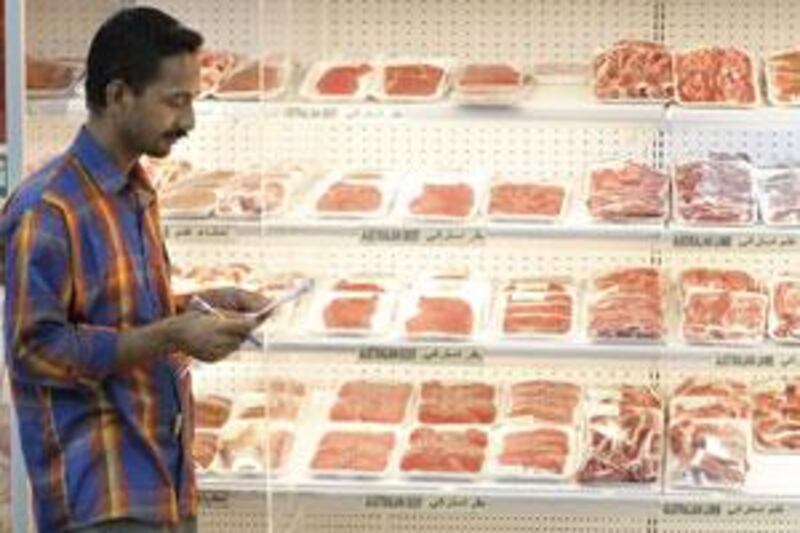Deflationary pressures in the UAE eased in January as economists forecast inflation would remain muted this year. A low inflation economy is viewed as an attractive environment for business. It can help boost disposable incomes of consumers and encourage businesses to make long-term plans safe in the knowledge that the purchasing power of their money will hold.
Consumer prices dropped 0.32 per cent on an annual basis in the month, from a 0.42 per cent decrease in December, data from the Ministry of Economy's National Bureau of Statistics showed. "Inflation will remain well behaved in the UAE this year," said Tim Fox, the chief economist at Emirates NBD. "A decline in inflation has been one of the bright spots of the downturn in the region." A strengthening US dollar would act as a counterbalance for rising global food prices, he said. Gulf economies are closely linked to the fortunes of the dollar through currency pegs.
Many companies complained about the rising cost of doing business during the peak years of economic growth in the UAE. A credit-driven property bubble supported by rising oil prices fuelled inflation across the region before the financial crisis. But the decline in the price of oil and a weakening of property prices helped relieve inflationary pressures across the region. "With tight liquidity and slow credit growth, I don't expect to see any inflationary pressures in Dubai, and in the UAE as a whole I would be surprised if inflation topped 1 per cent this year," said Simon Williams, the chief economist at HSBC in Dubai.
UAE consumer prices decreased 0.06 per cent in January from a month earlier, after falling 0.71 per cent in December. House prices in Dubai have already fallen at least 50 per cent in some areas, with analysts not expecting a recovery in the market until next year at the earliest. Within the consumer index for the UAE, prices in January in the main household category - which makes up about 40 per cent of the consumer price basket - nudged 0.42 per cent higher on a monthly basis due to increases in rents and energy costs.
Food prices edged up 0.05 per cent in January from the previous month. Transport prices slowed 0.09 per cent. Concerns about keeping a lid on consumer price rises have already prompted officials from the Ministry of Economy to increase checks on the price of food staples. Inflation ran at 1.6 per cent last year. That represents a sharp reversal from the year before when UAE inflation reached 12.3 per cent, the second-highest in the GCC.
National Bank of Abu Dhabi (NBAD) has forecast inflation of 2.3 per cent this year, while the Egyptian investment bank EFG-Hermes predicts 2 per cent. The IMF is expecting inflation of 1.5 per cent this year, up from an earlier forecast of 1 per cent. Data released this week showed inflation in Dubai dropped to its lowest level in at least a year in January, as the cost of food and drink fell in the run-up to the Dubai Shopping Festival, which ended last month. The inflation rate declined to 1.3 per cent on an annual basis in January from 2.8 per cent the month before, data from Dubai's statistics centre showed.
@Email:tarnold@thenational.ae





